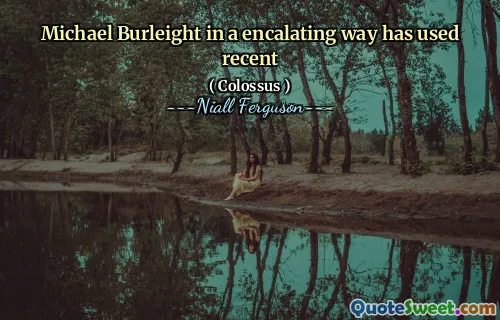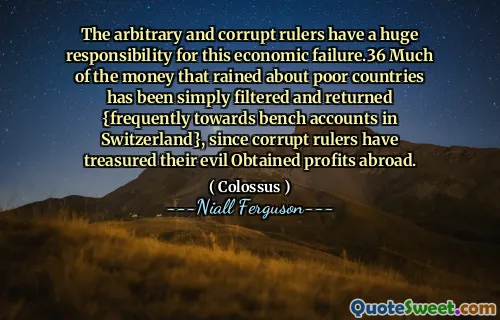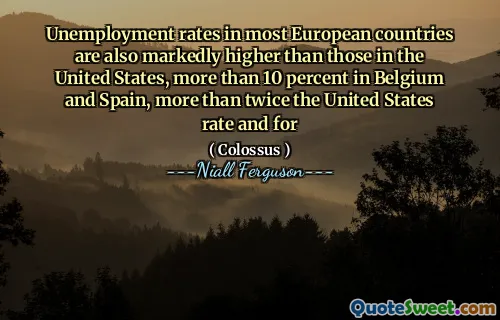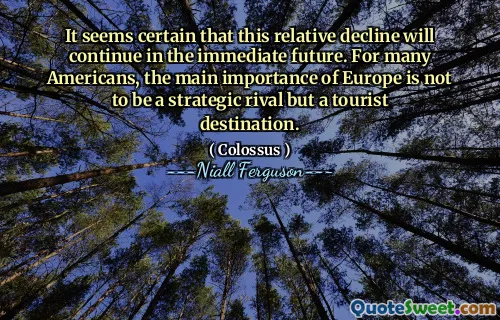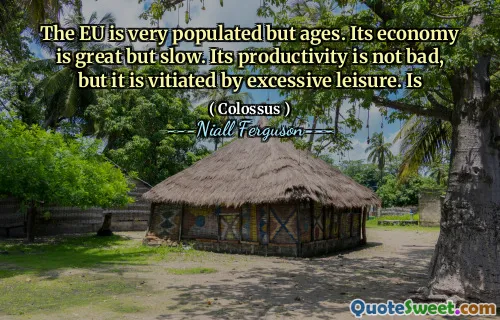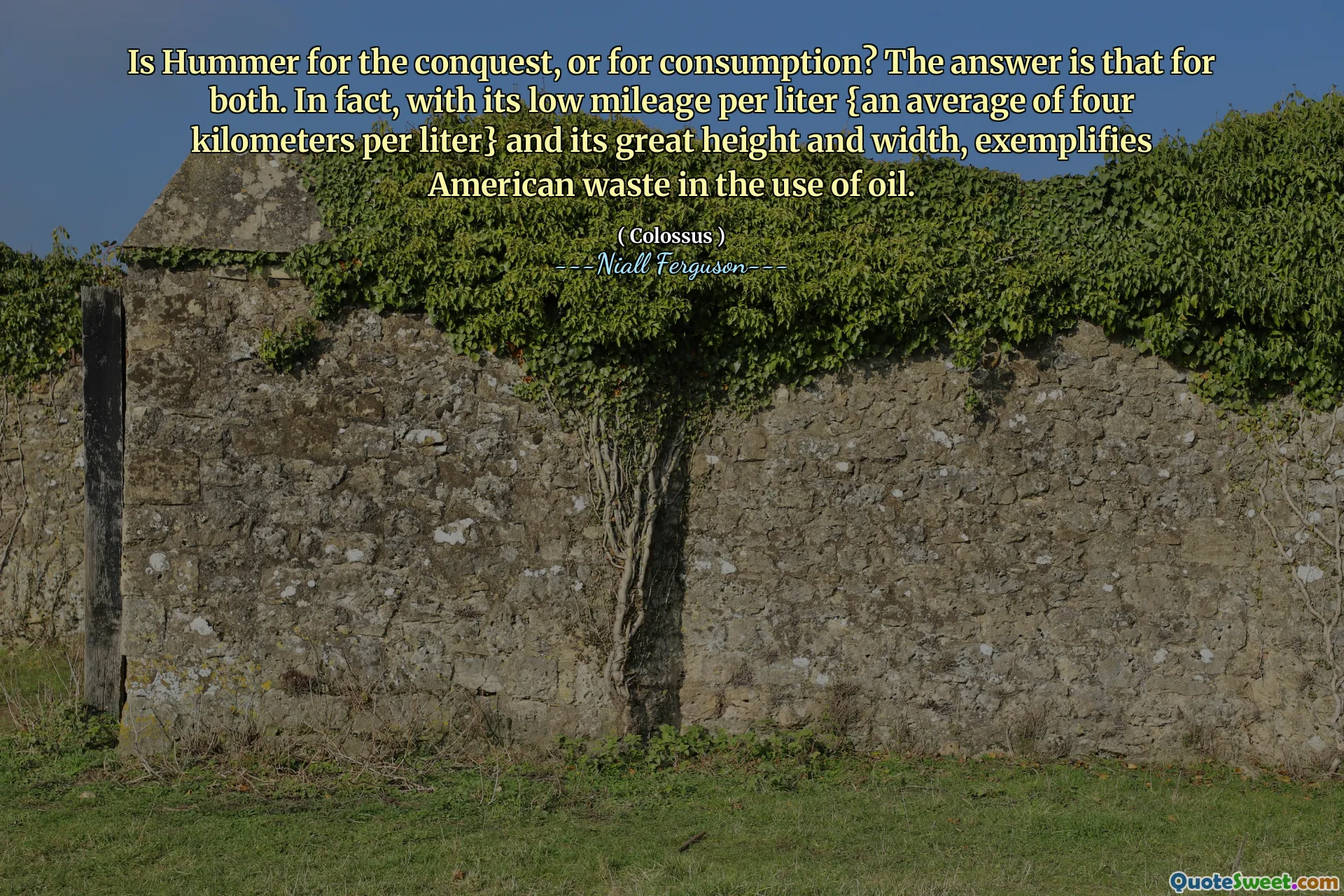
Is Hummer for the conquest, or for consumption? The answer is that for both. In fact, with its low mileage per liter {an average of four kilometers per liter} and its great height and width, exemplifies American waste in the use of oil.
The Hummer is emblematic of both dominance and excessive consumption in American culture. Its design and specifications clearly signal a vehicle that is built for conquest, showcasing a robust and intimidating presence on the road. However, this power comes at a significant cost, particularly regarding its fuel efficiency. With an average mileage of just four kilometers per liter, the Hummer is a prime example of the wasteful use of resources that characterizes American vehicle choices.
Niall Ferguson’s book, "Colossus," critiques how such vehicles highlight the contradictions within American consumerism—where the pursuit of power and status often leads to unsustainable practices. The Hummer, therefore, not only serves as a tool for asserting dominance but also as a stark reminder of the environmental impact of excessive oil consumption, reflecting the broader implications of American lifestyles on society and the planet.
